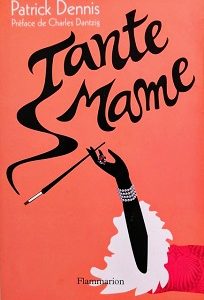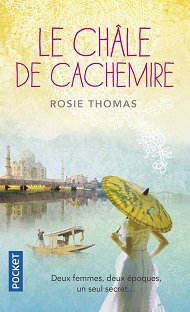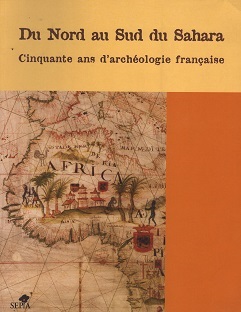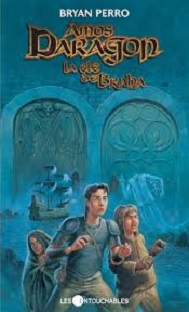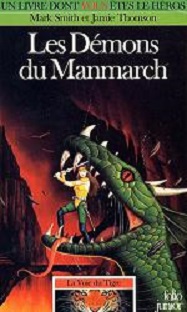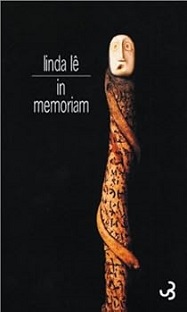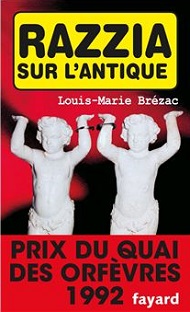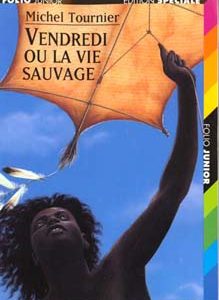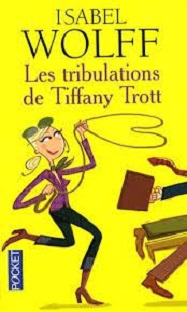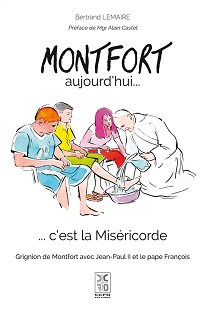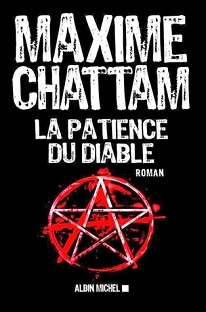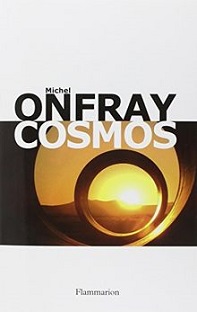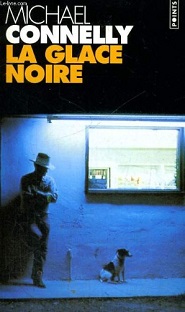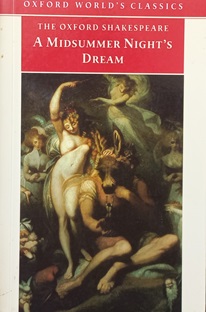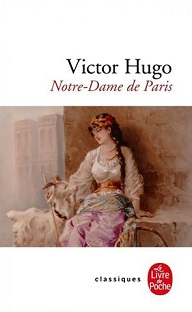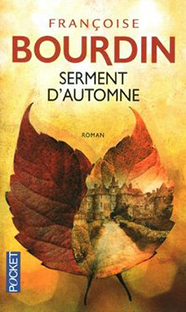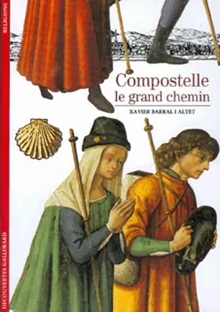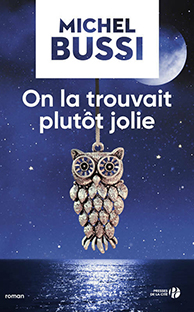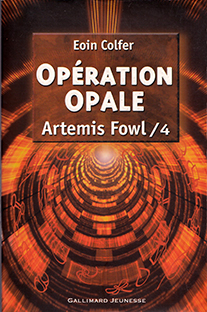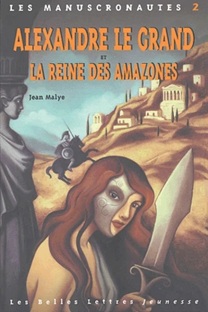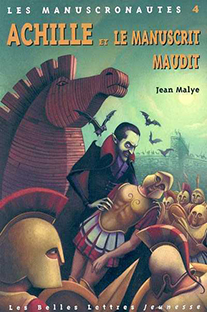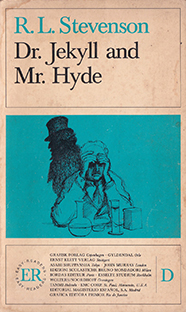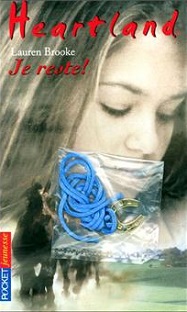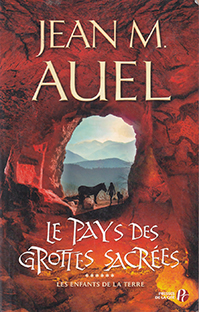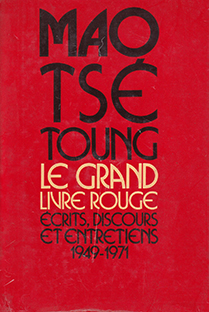
Longman : Pronunciation dictionary
Need help with pronunciation? The Longman Pronunciation Dictionary: Helps students with over 225,000 pronunciations in both British and American English using the International Phonetic Alphabet. Helps students with intonation by showing the stress patterns of thousands of compounds and idioms. User-friendly graphs show the preferred pronunciations of British and American speakers, based on extensive research by Professor Wells. NEW – now with the Longman Pronunciation Coach CD-ROM. Students can listen to the pronunciation of all entries in British and American English, then record and check their own pronunciation. Self Study Lab – Students can learn the International Phonetic Alphabet and practise their pronunciation with thousands of interactive exercises and feedback from Professor Wells. Teachers’ Resource Centre provides you with downloadable exercises for use in class.
Une autre histoire de l’espace
Une autre histoire de l’espace retrace le long chemin qui va de la naissance de l’astronomie au temps de Babylone jusqu’à la station spatiale internationale. Elle raconte non seulement les découvertes des scientifiques et les exploits des ingénieurs et des astronautes, mais accorde une grande place aux écrivains, aux philosophes, aux dessinateurs, aux cinéastes, dont les oeuvres ont suscité la passion des hommes pour le cosmos. Elle anticipe sur les réalisations du troisième millénaire en faisant appel aux rêves des visionnaires et des auteurs de science-fiction. Elle interroge l’avenir : Mars deviendra-t-elle une seconde Terre ? Découvrirons-nous d’autres formes de vie dans le système solaire ? L’humanité entrera-t-elle en contact avec des êtres extraterrestres ? Des vaisseaux interstellaires franchiront-ils un jour le gouffre qui nous sépare des autres étoiles ? Une autre histoire de l’espace décrit aussi la manière dont les satellites ont changé la vie. La fin de la guerre froide, la naissance de la société de l’information, la prise de conscience écologique : autant d’événements dans lesquels les moyens spatiaux ont joué un grand rôle. Et ce n’est qu’un début. Avec la rencontre de l’espace et de l’Internet, le XXIe siècle sera vraiment l’âge des satellites.
Exploring spoken english
A practical, insightful exploration of natural spoken English based on 20 varied authentic extracts. Exploring Spoken English is a practical guide to the features of natural spoken English, designed for teachers and advanced learners of English for use in groups and for self-study. The cassette consists of 20 varied extracts of authentic spoken English drawn from the Cambridge University Press and University of Nottingham corpus of spoken English.
Les Diamants de la guillotine
Dans peu de temps, l’Ancien Régime va s’effondrer. La monarchie, le couple royal exaspèrent le peuple et n’était-ce climat pré-révolutionnaire de haine, l’affaire du collier de la reine serait passée pour la plus plaisante des embrouilles.À la Cour, chacun sait que ce benêt de cardinal de Rohan, grand seigneur richissime, soupire pour Marie-Antoinette. Avec la complicité d’un faux mage et vrai gredin nommé Cagliostro, une aventurière de haut vol lui suggère l’idée d’un cadeau, une parure de diamants d’une valeur inestimable. À ce prix, la reine ne saurait refuser ses faveurs. Rohan se précipite dans le guet-apens. Le pigeon ne peut alors imaginer la mascarade qu’on lui prépare?Cette farce tournant au scandale qu’aucun romancier n’aurait pu imaginer, Pierre Combescot la réinvente avec le style malicieux et crépitant qui enchante ses lecteurs.
MASTERING BUSINESS ENGLISH: A LEARNING RESOURCE BOOK est un manuel destiné aux étudiants francophones se spécialisant dans l’anglais des affaires. Il s’adresse donc aux étudiants des Écoles de commerce mais aussi à ceux des filières universitaires de gestion, économie, commerce, management et autres disciplines apparentées. Le manuel prépare également les candidats à l’examen du Diploma in Business English de la Chambre de Commerce et d’Industrie Franco-Britannique. Fruit d’une longue collaboration d’un groupe de professeurs d’anglais du Groupe ESC Clermont, cet ouvrage met l’accent sur les activités interactives favorisant spontanéité et efficacité dans la communication. Le CD joint est un complément indispensable au livre. Il propose, pour chacun des chapitres, des exercices de compréhension orale pour une meilleure appréhension des spécificités de la langue.
Une grammaire de référence dynamique et efficace. – Toutes les règles de grammaire (concepts de base, règles de formation et d’emploi, subtilités et nuances de la langue) présentées de façon simple et claire. – Des exercices nombreux et variés avec des corrigés détaillés en fin de chapitre. – Des exemples rédigés dans une langue riche, moderne et authentique. – Une étude comparative du français et de l’anglais. – Des annexes fournissant des compléments d’information (problèmes de traduction, verbes irréguliers, phonétique). – Un index clair et complet qui favorise l’accès rapide à l’information recherchée. Une grammaire de référence, mise à jour pour cette nouvelle édition qui s’adresse aux lycéens, étudiants (classes préparatoires, grandes écoles, universités), ainsi qu’aux adultes (remise à niveau, perfectionnement). Paul Boucher, professeur d’université à la retraite et Frédéric Ogée, professeur à l’université Paris Diderot ont développé cette grammaire afin qu’elle réponde à une double exigence de clarté et d’exhaustivité et qu’elle offre à l’usager moderne les réponses à tous les problèmes qui se posent à lui.
La bonne expression en anglais
Des milliers de locutions française proverbiales, toutes faites, imagées, familières,littéraires, branchées, argotiques – classées par thèmes et accompagnées de leur traduction en anglais. De petits volumes indispensables à ceux qui veulent maîtriser, apprendre ou réapprendre les langues, telles qu’on les parle et les écrit aujourd’hui.
Cet ouvrage s’adresse au public non angliciste et angliciste, en particulier aux étudiant(e)s de littératures, langues, et civilisations étrangères (LLCE – Licence et Master), et de langues étrangères appliquées (LEA – Licence et Master), à celles et ceux des classes préparatoires, littéraires ou non, des écoles d’ingénieurs et des BTS, ainsi qu’à celles et ceux qui préparent le CAPES et/ou l’Agrégation pour lesquels la langue orale et la phonétique ont un rôle fondamental. Cet ouvrage entend répondre à un double besoin exprimé par les étudiant(e)s : disposer à la fois d’un cours théorique abordable et de nombreux exercices d’application corrigés. Le premier chapitre pose les jalons nécessaires et vise à vous familiariser progressivement avec le code phonétique et le système vocalique et consonantique en anglais britannique : des exercices variés permettent d’illustrer chaque étape. Le deuxième chapitre est centré sur le rythme et les règles accentuelles essentielles en anglais britannique. Le troisième chapitre propose des exercices récapitulatifs et des extraits de texte corrigés permettant de consolider les acquis. Un index détaillé renvoie au cours théorique.
Cette grammaire a pour objectif d’apporter une explication aux faits de langue. Très complète, elle propose une réflexion sur les phénomènes grammaticaux, de nombreux exercices, 24 versions commentées et traduites, et un classement judicieux des verbes irréguliers. Elle permettra aux apprenants de parfaire leurs connaissances, et d’affiner leur approche de la langue anglaise.
Tante mame
Tante Mame est une femme imprévisible, émancipée, et fantasque dont la vie est régie par un principe intangible : la liberté. Lorsqu’elle recueille son neveu Patrick, jeune orphelin, ce n’est pas pour l’entretenir dans les convenances ni les conventions, mais pour l’initier à une existence exubérante, pleine de passions cocasses et d’humour, lui donnant ainsi une leçon pour la vie: ne jamais céder au découragement. Hilarant de la première à la dernière page, Tante Mame est un étincelant témoignage de l’humour anglo-saxon, nourri de dérision, d’ironie, de fougue, et le lecteur gardera pour seule nostalgie de n’avoir pas eu, lui aussi, une Tante Marne dans sa vie. Roman culte, Tante Mame, dont le personnage a d’ailleurs été inspiré par la propre tante de l’auteur, l’excentrique Marion Tanner, se situe dans la plus grande tradition de la comédie américaine.
Le châle de cachemire
Pays de Galles, 1940. Jeune mariée, Nerys Watkins quitte la campagne galloise pour accompagner son mari missionnaire affecté en Inde. Alors que la guerre du Cachemire éclate, elle découvre Srinagar, la ville au bord du lac, où les Britanniques habitent de luxueux bateaux et dansent, flirtent et cancanent comme s’il n’y avait pas de guerre. Nerys est entraînée dans une dangereuse amitié et, au moment où elle retrouve son mari, l’innocente épouse galloise n’est plus la même femme. Des années plus tard, alors que Mair Ellis débarrasse la maison de son père, elle découvre un éblouissant châle ancien et une boucle de cheveux d’enfant. Se rendant au Cachemire sur les traces de ses grands-parents, Mair se lance dans une quête qui changera à jamais sa vie. Ce récit épique mêle secrets de famille, amour sur fond de guerre et liaisons dangereuses. Avec comme toile de fond une évocation vivante et superbement documentée de l’Inde des années 1940, cette saga familiale bouleversante a connu un grand succès populaire et critique outre-Manche. « Envoûtant… un délice du début à la fin »
L’anglais tel qu’on le parle ” au travail ” a ses codes, ses termes spécialisés, ses expressions consacrées. Pour vous aider à le maîtriser tout en révisant les structures grammaticales essentielles et en enrichissant votre vocabulaire économique et commercial, vous trouverez dans ce livre : – 600 exercices (exercices à trous, QCM, orthographe, reconstitutions de phrases, thèmes…) classés par ordre alphabétique des points de grammaire ; – une batterie de tests destinés à évaluer vos connaissances et à créer des automatismes indispensables ; – tous les corrigés pour vérifier que les structures sont bien acquises. Cet ouvrage s’adresse aux étudiants, aux personnes qui travaillent dans les secteurs de l’import-export, du marketing, de l’informatique, de la banque ou de la communication et à tous ceux qui s’intéressent aux langages de l’Internet et de la presse internationale.
Du nord au sud du Sahara – cinquante ans d’archéologie française en Afrique de l’ouest et au Maghreb
Actes du colloque du 13 et 14 mai 2002 à Paris : le point sur la recherche archéologique française depuis 50 ans avec le concours des meilleurs archéologues mondiaux. Un ouvrage de fonds qui aborde les dernières découvertes réalisées à ce jour.
Amos Daragon – Tome 2 – La clé de Braha
Cette nouvelle aventure mènera Amos Daragon jusqu’à Braha, la cité des morts. C’est au prix de sa vie qu’il pourra parvenir à ce lieu étrange, inaccessible aux vivants. Commence alors une longue et difficile quête de la mystérieuse clé de Braha, au cours de laquelle l’intelligence et la ruse seront les seules armes de notre héros.
Les démons du Manmarch
Le jour de votre retour triomphal, les rues de votre cité ont été jonchées de fleurs sous vos pas. Grâce à votre victoire sur Honoric, Irsmun jouit à présent, sous votre règne, d’une prospérité sans précédent. Aurez-vous le courage de tout remettre en jeu afin de partir à la recherche de votre fidèle compagnon Glaivas le Ranger et de Doré le Jeune, prisonniers au fin fond du Rift ? Il vous faudra pour cela oser descendre au coeur d’un réseau de galeries obscures, ultime repaire des forces du mal.
Le Judo
Inventé au Japon à la fin du XIXe siècle par maître Jigoro Kano, le judo est devenu un sport universel qui réunit aujourd’hui plus de 15 millions de pratiquants. Cet ouvrage propose une découverte et un apprentissage de ce sport passionnant, depuis tes premiers pas de judoka sur le tatami jusqu’à l’obtention de la ceinture noire. Tu y apprendras toute la technique individuelle ainsi que toutes les stratégies de combat, qu’il se déroule debout – nage waza – ou au sol – ne waza – et tu découvriras que pratiquer le judo c’est aussi entrer dans une école de la vie où sont enseignés la maîtrise de soi, le respect des valeurs et celui de ses adversaires. Enfin, tu feras connaissance avec les plus grands judokas, ceux qui ont marqué l’histoire de ce sport en France et à l’étranger.
Découvrir le judo
Plus qu’une introduction sur les arts martiaux, ces ouvrages sont de véritables dossiers, guides pratiques pour qui veut découvrir, approfondir, comparer. Outils d’informations mais déjà instrument de travail, les Budoscopes regorgent de renseignements utiles et de réponses pratiques. Par sa conception et son contenu, cette collection dit l’essentiel sur tout dans le domaine des arts martiaux. A travers une présentation accessible à tous, ces ouvrages, rédigés et illustrés par des spécialistes, sont autant de clés pour ce qui peut devenir pour vous une aventure personnelle irremplaçable. Pour comprendre l’un des plus grands courants sportifs et culturels de notre époque… Découvrir et pratiquer le judo : En 22 photos et 277 dessins, ce livre vous dit tout de la ” voie souple ” définie il y a plus d’un siècle à partir des anciennes méthodes guerrières du jiu-jitsu, aujourd’hui sport olympique, pratiqué par des millions de personnes de tous âges à travers le monde : principes, techniques, entraînement, progression…
In Memoriam
« Maintenant qu’elle était morte, il me fallait affronter la vacuité de mon esprit : j’avais vécu l’inoubliable et je passerais le restant de mes jours à ressasser ce deuil. Si Thomas n’avait pas dispersé les cendres de Sola dans la mer, j’aurais été assez fou pour les conserver, disputant à mon frère la propriété des reliques. J’avais des rêveries morbides, j’enviais ceux qui invoquaient les mânes des trépassés pour avoir avec eux un colloque qui ouvrait les portes de l’invisible. Mais pour ma sauvegarde, je m’ingéniais à découvrir des explications rationnelles. Les peut-être que j’avançais étaient des prémisses qui ne bouleversaient pas la donne. L’équation demeurait identique : j’avais perdu Sola, et moi qui aurais dû être une vigie aux aguets, je n’avais pas prévu la tempête.»
Razzia sur l’antique
« Dans mon métier, monsieur l’inspecteur, sachez que nous sommes informés de tout ce qui se passe », dit l’antiquaire. Les deux hommes se retrouvèrent face à face. Le flic et le truand. La loi et l’affairisme assassin.
Vendredi ou la vie sauvage
Robinson, parti faire fortune en Amérique du Sud échoue, au gré d’un naufrage, sur une île déserte, que nulle carte ne signale. Il s’aperçoit alors très vite qu’il ne doit s’en remettre qu’à lui-même et à son ingéniosité pour survivre, dans une nature pas toujours très accueillante. Comment parviendra-t-il à supporter sa solitude ? Arrivera-t-il à imposer ses règles d’homme civilisé à cette nature sauvage et à la domestiquer ou bien est-ce elle, finalement, qui aura le dernier mot ? Michel Tournier avait déjà repris la célèbre aventure de A. Selkirk, le Robinson Crusoé du roman de Defoe, dans Vendredi ou les limbes du Pacifique, en y ajoutant une forte dimension philosophique. Vendredi ou la vie sauvage garde cette dimension, même s’il s’agit d’une adaptation pour les enfants. Il faut sans doute l’éclairage d’un adulte pour en tirer toute la richesse. Mais c’est aussi un livre d’apprentissage plus pratique : comment construire un arc et tailler des flèches, comment parler grâce au langage des mains, ou comment construire des règles de vie, nécessaires à toute communauté. Enfin, avec l’apparition de Vendredi dans l’univers de Robinson, les enfants pourront saisir toute la complexité des relations humaines et combien la présence d’autrui nous est nécessaire et même indispensable. –Xavier Marciniak Le 29 septembre 1759, le navire La Virginie fait naufrage. Seul rescapé, Robinson échoue sur une île déserte où il tente de survivre à une nature hostile en déployant des trésors d’ingéniosité. Mais son existence solitaire bascule le jour où un autre être humain fait son apparition sur l’île: Vendredi, le sauvage… Une aventure inoubliable, une ode à la liberté et à la nature.
Les tribulations de Tiffany Trott
Si la vie professionnelle de Tiffany Trott est une indéniable réussite, sa vie sentimentale, en revanche, est un véritable fiasco: à trente-sept ans, elle est toujours célibataire et court invariablement d’échec en échec. Mais, comme elle rêve de mariage et d’enfants, elle décide de ne s’épargner aucune peine pour trouver son homme idéal : petites annonces, agences de rencontres, soirées pour célibataires, vacances sont autant de sources d’espoir… et de désillusion. Ses ex, Dédé Bauché et Alex ? Des incapables. Piers, Paul, Eric, et tous les autres ? Des catastrophes. Certes, il y a bien Super-Battant, classé dans la catégorie des “pas-mal-limite-acceptables”… Et si, comme le pense son amie Lizzie, la raison de tous ces échecs sentimentaux était tout simplement la peur de s’engager et de renoncer à la liberté ? Ce roman vif et pétillant, plein d’humour et d’émotion, nous transporte dans la jungle contemporaine des relations sentimentales ; nul doute que plus d’une lectrice s’identifiera à l’héroïne ; quant aux lecteurs, peut-être seront-ils curieux de partager un point de vue féminin sur la construction parfois ardue du couple.
Saint Louis-Marie : tricentenaire de sa mort à Saint-Laurent-sur-Sèvre (28 avril 1716) – Saint Jean-Paul II : 20 ans de son pèlerinage à Saint-Laurent-sur-Sèvre (19 septembre 1996) – Il est bon de butiner le miel qui jaillit du coeur de ces deux figures de sainteté, unies par une véritable ” fraternité d’âme “. – Les 28 derniers jours de la vie de saint Louis-Marie à Saint-Laurent-sur-Sèvre se concluent par un ultime sermon, véritable testament spirituel. – Ses dernières paroles créent la surprise ! Elles rejoignent en effet aujourd’hui l’intuition du pape François offrant à l’Eglise l’année du Jubilé extraordinaire de la miséricorde. – Fréquenté par des pèlerins venus du monde entier, Saint-Laurent-sur-Sèvre est devenu le creuset de la dévotion envers ces géants de la sainteté que sont Louis-Marie et Jean-Paul II, habités l’un et l’autre par une même référence : ” Tout à toi, Marie. ” Préface de Mgr Alain Castet, évêque de Luçon.
La patience du diable
Un go-fast pris en flag qui transporte bien pire que de la drogue… Deux ados qui tirent sur les passagers d’un TGV lancé à pleine vitesse… Des gens ordinaires découverts morts… de terreur. Le Diable mène le bal, le monde est devenu fou. Lieutenant à la Section de Recherche de Paris, Ludivine Vancker comprend bientôt qu’un fil sanglant relie ces faits divers. Rien ne pourra l’empêcher de remonter la piste à sa source. Aux racines de la peur. Le Mal peut-il contaminer ceux qui le traquent ?
Cosmos
Qu’est-ce qui réunit la mort d’un père sous un ciel sans étoiles, un jardin d’enfance, l’enfouissement d’un spéléologue, les fragrances d’un champagne de 1921, le hérisson des tziganes, la coquille d’un mollusque, l’anguille des Sargasses, un ver parasite, le vin biodynamique, la poésie des peuples sans écriture, un masque africain, des haricots sauteurs, des acacias qui communiquent, un philosophe zoophile, des végétariens exploiteurs de poules, des porcs en batterie, des toréadors habillés en femmes, un curé athée, un matérialiste mort d’une indigestion de pâté de faisan, une peinture pariétale, un alignement de pierres, une fête du soleil indienne, une église catholique, les anges et les comètes, les trous noirs, un haïku, une toile d’Arcimboldo, le Land Art, la musique répétitive, entre autres fragments d’une “Brève encyclopédie du monde” ? Le cosmos. Cet ouvrage, dont Michel Onfray écrit qu’il est « son premier livre », propose une philosophie personnelle de la nature. Contempler le monde, comprendre ses mystères et les leçons qu’il nous livre, ressaisir les intuitions fondatrices du temps, de la vie, de la nature, telle est l’ambition de “Cosmos”, qui renoue avec l’idéal païen d’une sagesse humaine en harmonie avec le monde.
Shakespeare – Comme il vous plaira
Génie universel, qui traverse le temps, Shakespeare est pourtant indissociable de son époque, la Renaissance anglaise, brillant spectacle dont le souverain est le centre et la raison d’être. Professionnel de la scène, maître d’oeuvre accompli, il reflète avec brio la comédie humaine qui se joue partout autour de lui. En historien autant qu’en analyste du théâtre, François Laroque présente le monde de bruit et de fureur des tragédies, Hamlet, Othello, le Roi Lear, Macbeth, le monde de charme et de fantaisie des comédies, Comme il vous plaira.
La glace noire
La veille de Noël, l’inspecteur Moore est trouvé sans vie dans un motel de Los Angeles. Arrivé sur les lieux, son collègue Harry Bosch se fait virer par ses patrons : c’est un suicide, point final. Furieux, Bosch enquête en douce et comprend que Moore était lié à un trafic de black ice, une drogue nouvelle qui fait des ravages en Californie. Plus troublant, dans la voiture de Moore il découvre un mot qui lui est clairement destiné. Entre les deux hommes, un étrange dialogue se noue, d’outre-tombe au début, jusqu’au jour où on décèle une mouche dans le corps d’un travailleur mexicain jeté à la décharge publique…
A Midsummer Night’s Dream
Shakespeare’s intertwined love polygons begin to get complicated from the start–Demetrius and Lysander both want Hermia but she only has eyes for Lysander. Bad news is, Hermia’s father wants Demetrius for a son-in-law. On the outside is Helena, whose unreturned love burns hot for Demetrius. Hermia and Lysander plan to flee from the city under cover of darkness but are pursued by an enraged Demetrius (who is himself pursued by an enraptured Helena). In the forest, unbeknownst to the mortals, Oberon and Titania (King and Queen of the faeries) are having a spat over a servant boy. The plot twists up when Oberon’s head mischief-maker, Puck, runs loose with a flower which causes people to fall in love with the first thing they see upon waking. Throw in a group of labourers preparing a play for the Duke’s wedding (one of whom is given a donkey’s head and Titania for a lover by Puck) and the complications become fantastically funny.
Notre-Dame de Paris
En 1831, Victor Hugo réinvente le Moyen Âge et élève un monument littéraire aussi durable que l’œuvre de pierre qui l’a inspiré. Sous la silhouette noire et colossale de la cathédrale fourmille le Paris en haillons des truands de la Cour des Miracles. Image de grâce et de pureté surgie de ce cauchemar, la bohémienne Esméralda danse pour le capitaine Phoebus et ensorcelle le tendre et difforme Quasimodo, sonneur de cloches de son état. Pour elle, consumé d’amour, l’archidiacre magicien Claude Frollo court à la damnation. De cette épopée hallucinée, ces monstres et ces figures s’échappent pour franchir les siècles, archétypes de notre mythologie nationale, de notre art et de notre Histoire.
Le Chirurgien ambulant
Espagne, XVIe siècle, monastère de Campodios. Sentant sa mort prochaine, l’abbé Hardinus convoque Vitus, son protégé, qu’il a découvert, abandonné, alors qu’il était encore un nourrisson. Afin que le jeune homme connaisse ses origines, il lui remet un indice : un tissu damassé, visiblement d’origine anglaise. Et voilà, pour Vitus, le début d’une quête semée d’embûches, de rencontres, et l’occasion de pratiquer son art, la chirurgie, sur les routes de l’Europe de la Renaissance. Tous les ingrédients du roman historique d’aventures sont ici réunis, pour le plus grand plaisir du lecteur : personnages pittoresques – nains, Tziganes, saltimbanques, corsaires -, évocation de l’Inquisition, complots, rebondissements incessants… Un vrai bonheur de lecture.
Serment d’Automne
Guillaume, brillant architecte, met momentanément de côté sa carrière pour se rendre au chevet de son jumeau, Robin, gravement malade.
Ce qui devait n’être qu’un court séjour s’éternise au fur et à mesure que les problèmes s’accumulent : le paysan chargé des vignes familiales menace de partir et la femme de Robin, enceinte, ne s’en sort plus.
L’arrivée de Ralph, le fils rebelle de Guillaume, qui vient de lui voler sa fiancée, ne va pas arranger les choses…
Détective
Dans les ténèbres d'une nuit d'hiver, une Chevrolet lancée à pleine vitesse dévore la route qui relie Miami à la prison centrale de Raiford. À bord, Malcolm Ainslie, prêtre devenu sergent de la police criminelle de Floride. Il ne lui reste que peu de temps pour recueillir les dernières confessions du détenu Elroy Oil : à l'aube, l'homme sera exécuté.
La vie est facile, ne t’inquiète pas
“Alors que j’étais inconsolable, il m’avait mise sur le chemin du deuil de mon mari. J’avais fini par me sentir libérée de lui aussi. J’étais prête à m’ouvrir aux autres.”
Depuis un an que Diane est rentrée d’Irlande, elle a tourné la page sur son histoire tumultueuse avec Edward, bien décidée à reconstruire sa vie à Paris. Avec l’aide de Félix, elle s’est lancée à corps perdu dans la reprise en main de son café littéraire.
C’est là, aux “Gens heureux lisent et boivent du café”, son havre de paix, qu’elle rencontre Olivier. Il est gentil, attentionné, et surtout il comprend son refus d’être mère à nouveau. Car Diane sait qu’elle ne se remettra jamais de la perte de sa fille.
Pourtant, un événement inattendu va venir tout bouleverser : les certitudes de Diane quant à ses choix, pour lesquels elle a tant bataillé, vont s’effondrer les unes après les autres.
Aura-t-elle le courage d’affronter un autre chemin ?
A novel of Pearl Harbour – A boy at war
December 7, 1941: A morning like any other, but the events of this day would leave no one untouched.
For Adam, living near Honolulu, this Sunday morning is one he has been looking forward to — fishing with friends, away from the ever-watchful eyes of his father, a navy lieutenant. Then, right before his eyes, Adam watches Japanese planes fly overhead and attack the U.S. Navy. All he can think is that it’s just like in the movies. But as he sees his father’s ship, the Arizona, sink beneath the water, he realizes this isn’t make-believe. It’s real.
Over the next few days, Adam searches for answers — about his friends, the war, and especially, his father. But Adam soon learns sometimes there are no answers.
On la trouvait plutôt jolie
Du désert sahélien à la jungle urbaine marseillaise, en quatre jours et trois nuits…
Un suspense renversant et bouleversant.
« – Qu’est-ce qui ne va pas, Leyli ? Vous êtes jolie. Vous avez trois jolis enfants. Bamby, Alpha, Tidiane. Vous vous en êtes bien sortie.
– Ce sont les apparences, tout ça. Du vent. Il nous manque l‘essentiel. Je suis une mauvaise mère. Mes trois enfants sont condamnés. Mon seul espoir est que l’un d’eux, l’un d’eux peut-être, échappe au sortilège.
Elle ferma les yeux. Il demanda encore :
– Qui l’a lancé, ce sortilège ?
– Vous. Moi. La terre entière. Personne n’est innocent
dans cette affaire. »
Artemis Fowl – 4 – Opération Opale
Dès 11 ans – Les secrets du Peuple des fées sont désormais bien gardés : pour se protéger d’Artemis Fowl, elles ont effacé tous ses souvenirs. Sauf qu’aujourd’hui, elles auraient bien besoin d’un de ses coups de génie : Opale Koboï, une fée dangereuse et assoiffée de pouvoir les menace. Annihiler le Peuple des fées, humilier Holly Short et Artemis avant de les supprimer… ambitieux portable. Artemis doit à tout prix retrouver la mémoire, et vite !
Les Enfants de la Terre – Tome 1 à 4
Les Enfants de la Terre (en anglais : Earth’s Children) est une série romanesque en six volumes de Jean M. Auel, qui met en scène la vie quotidienne des êtres humains durant la Préhistoire. Elle a été publiée entre 1980 et 2011.
L’action se déroule sur le continent européen, 30 000 ans avant notre ère, au cours de la dernière période glaciaire. L’homme de Cro-Magnon ou Homo sapiens cohabite avec l’homme de Néandertal et la fiction est donc une contraction entre la fin du Moustérien, l’Aurignacien et le début du Gravettien. Elle met en scène Ayla, une jeune Homo sapiens élevée par des néandertaliens, qui fait preuve à la fois d’ingéniosité, de tolérance et de soif de vivre.
Les tomes 5 et 6 peuvent vous être proposés séparément suivant nos arrivages
Nicolas rêvait de passer ses grandes vacances tranquillement devant sa télé, une manette dans les mains. Marie s’imaginait déjà allongée sur le sable à papoter avec ses copines. C’est raté. Leur grand-père a décidé de les conduire cette fois-ci, à bord de ses manuscrits magiques, 23 siècles en arrière, auprès d’un personnage hors du commun. Prénom : Alexandre, futur surnom : le Grand, occupation devenir le maître du monde. Et voilà donc les Manuscronautes parachutés en plein tourisme guerrier, de Macédoine en Perse avec détour par les Enfers et les jeux olympiques de Pisa. Au programme, le fameux domptage du cheval Bucéphale, la troublante rencontre avec Thalestris, la Reine des Amazones, et la terrible bataille d’Issos contre l’immense armée de Darius, le Roi des Perses… Et la découverte d’un mystérieux méchant aux pouvoirs diaboliques qui poursuit les Manuscronautes. Une nouvelle aventure pleine de rebondissements et de révélations, toujours fondée sur les textes d’historiens classiques (Plutarque, Arrien, Diodore…) et une nouvelle occasion de découvrir, qu’en ce temps-là, les écrivains étaient des champions pour raconter de belles histoires.
Pour les vacances de cette année, direction les plages ensoleillées de la Troade. Pas pour bronzer mais pour assister à la célèbre guerre de Troie grâce au manuscrit de l’Iliade, le fabuleux poème d’Homère. Nicolas, Marie et leur grand-père rencontreront le super-héros Achille en chair et en os ainsi que les autres acteurs de cette tragédie faite de larmes et de sang, Patrocle, son ami d’enfance, Ulysse le rusé, Agamemnon le vaniteux, le séduisant et pleutre Pâris, Hélène dont la beauté est la cause de cette tuerie, Hector le valeureux défenseur de Troie et de sa famille, Priam son vieux père, Enée le futur fondateur de Rome et bien sûr les dieux au grand complet sans qui la guerre de Troie ne serait qu’une énième bagarre entre humains. Mais qui sont ces milliers d’oiseaux qui prennent le pouvoir du ciel ? Que vient faire Dracula dans cette légende antique ? Qui est cette jeune fille étrange venue du passé ? Bien sûr, Nicolas utilisera ses pouvoirs pour remettre de l’ordre dans ces manuscrits magiques et cette fois-ci avec l’aide de sa sœur Marie qui découvre, elle aussi, qu’elle porte en elle un héritage extraordinaire.
Dr. Jekyll and Mr. Hyde
Passing through the streets of London late at night with hurried footseps, Edward Hyde, a man of evil, follows up his private pleasures, ready to attack and murder anyone who hinders him.
Henry Jekyll, a man who is rich, successful and clever, sitting at home with his friends, loved and respected by all, holds a dark secret: the knowledge of who Edward Hyde really is.
Which of these two men will live to tell the truth?
Dans l’épaisseur de la chair
C’est l’histoire de ce qui se passe dans l’esprit d’un homme. Ou le roman vrai de Manuel Cortès, rêvé par son fils – avec le perroquet Heidegger en trublion narquois de sa conscience agitée. Manuel Cortès dont la vie pourrait se résumer ainsi : fils d’immigrés espagnols tenant bistrot dans la ville de garnison de Sidi-Bel-Abbès, en Algérie, devenu chirurgien, engagé volontaire aux côtés des Alliés en 1942, accessoirement sosie de l’acteur Tyrone Power – détail qui peut avoir son importance auprès des dames… Et puis il y a tous ces petits faits vrais de la mythologie familiale, les rituels du pêcheur solitaire, les heures terribles du départ dans l’urgence, et celles, non moins douloureuses, de l’arrivée sur l’autre rive de la Méditerranée. Dans l’épaisseur de la chair est un roman ambitieux, émouvant, admirable – et qui nous dévoile tout un pan de l’histoire de l’Algérie. Une histoire vue par le prisme de l’amour d’un fils pour son père.
Ayla, la voyageuse des steppes, compagne de Jondalar, ne cesse d’étonner le clan des Zelandonii. Elle-même, fille de tribus nomades, amie des chevaux et des loups apprivoisés, découvre les mœurs déconcertantes de ses hôtes. Elle s’adapte peu à peu à leurs confortables abris sous roche, s’émerveille des peintures dont ils ornent leurs habitations et leurs grottes, compare leurs outils et leur manière de vivre.
Née de leurs différences, une nouvelle humanité se profile. L’enfant tant attendu de Jondalar, qu’elle porte, en sera le plus précieux fleuron.
Cette saga légendaire tente le pari fou de ressusciter la vie de nos ancêtres à l’âge de pierre, à ce tournant de l’histoire du monde où apparaissent la pensée abstraite, l’art et le langage. Et ce n’est peut-être pas la fin du voyage.
Heartland – Tome 1 – Je reste !
A partir de 10 ans. Heartland, c’est toute la vie de Laura. Là, elle a vu sa mère redonner confiance à des chevaux maltraités. Là, elle l’a vue guérir les cas les plus désespérés. Laura aussi a hérité de ce don, cette capacité à comprendre et à écouter les chevaux. Mais un tragique accident vient tout bouleverser. A présent, ce qui reste à Laura, c’est Pegasus et ce que sa mère lui a appris des chevaux : les miracles peuvent toujours arriver à Heartland…
Des millions de fans à travers le monde l’attendaient depuis neuf ans ! Ayla, notre ancêtre à tous, est de retour dans le sixième et dernier volet de la formidable saga préhistorique ” Les Enfants de la Terre “.
La petite orpheline Cro-Magnon recueillie par des Neandertal a fait bien du chemin depuis Le Clan de l’Ours des Cavernes, le premier tome de ses aventures. Elle vient de mettre au monde une petite fille, et a été peu à peu adoptée par les membres de la Neuvième Caverne, le clan de son compagnon Jondalar. A tel point que la Zelandoni, guérisseuse et chef spirituel de la tribu, la choisit pour lui succéder un jour. Afin de parvenir à cette fonction, Ayla suit pendant plusieurs mois la grande prêtresse. Son initiation passe notamment par la visite des nombreuses grottes ornées de la région, l’occasion pour elle de découvrir des sites magnifiquement décorés, dont elle apprend à comprendre le sens. Mais cette formation, jalonnée de rites de passage, n’a rien d’une promenade de santé, et la jeune femme devra franchir bien des obstacles avant de devenir Zelandoni. Saura-t-elle trouver un équilibre entre ses obligations de jeune mère et d’épouse et les exigences de son apprentissage ?
L’oiseau des ténèbres
Tout ce qu’Hollywood compte de stars vibre au procès David Storey, un producteur que l’inspecteur Harry Bosch s’est juré de confondre à la barre, lorsque Terry McCaleb, le héros de Créance de sang, reçoit la visite de l’inspectrice Jaye Winston qui n’arrive toujours pas à élucider l’assassinat d’un petit malfrat, Edward Gunn. McCaleb jette un coup d’œil au dossier et reste pétrifié par ce qu’il découvre : les mains dans le dos et la tête dans un seau, Gunn s’est étranglé lui-même en resserrant le nœud coulant relié à ses pieds. Plus étrange encore, sur son bâillon le tueur a écrit ” prends garde, prends garde, Dieu voit “. Où le meurtrier voulait-il mener la police avec ces mots ? Telle est l’énigme que doit résoudre McCaleb s’il ne veut pas céder à l’évidence : l’assassin de Gunn est un flic passé de l’autre côté – celui des ténèbres.
Le dictionnaire Rimbaud
La lecture des dictionnaires, l’apprentissage de la grammaire sont à l’origine de la maîtrise exceptionnelle de la langue de Rimbaud. Il en sait la nécessité absolue, lui qui a choisi de remettre son destin dans les mains de la poésie.
Des années durant, il jonglera avec les mots, au point de nous masquer, parfois, leur sens véritable. Il mélange l’argot, les sens secondaires de noms communs, le patois ardennais, le langage érotique, l’anglais… Il échafaude des poèmes magiques aux images si ingénieuses, aux équilibres si délicats, aux extravagances si ambiguës que nous sommes parfois perdus dans les labyrinthes du langage.
Avec plus de mille définitions de mots, Claude Jeancolas nous permet de percevoir clairement la vision du poète.
Et comme ce dictionnaire se devait d’être complet sur la vie autant que sur l’œuvre, il comporte des définitions sur les hommes, les femmes et sur les lieux rencontrés au cours de ses pérégrinations. Il donne les traductions des mots de la langue amhara utilisés par Rimbaud dans ses lettres du Harar.
Ce livre crée l’événement car il remet en cause nombre de commentaires publiés jusqu’ici. Il a pour vocation de devenir un outil essentiel mis au service des professeurs, des étudiants, des élèves et des chercheurs et plus largement de permettre à chaque lecteur de goûter pleinement le génie poétique de Rimbaud. Enfin, dernier atout, ce dictionnaire comporte l’œuvre poétique complète de Rimbaud avec indication des mots analysés dans la partie lexique.
Ces textes de Mao, allant de 1949 à 1971, ont le grand mérite de réfléchir spontanément la pensée du Président. Ils ne sont pas “arrangés”, expurgés, affadis mais laissent apparaitre un homme vigoureux, qui n’a pas peur des mots, qui s’exprime souvent de façon imagée, parfois crue, qui reconnait avoir commis des fautes et d’en commettre encore, vref, qui refuse le piédestal sur lequel veulent le hisser les autres.
Il est, par exemple, assez étonnant de lire sa défense des étudiants qui, écrasés par trop de travail, s’endorment pendant les cours, ses invitations à la désobéissance si les règlements sont trop strics, sa tolérance vis-)-vis de mouvements fr grève de la part d’ouvriers ou de paysans exaspérés, etc.
….
